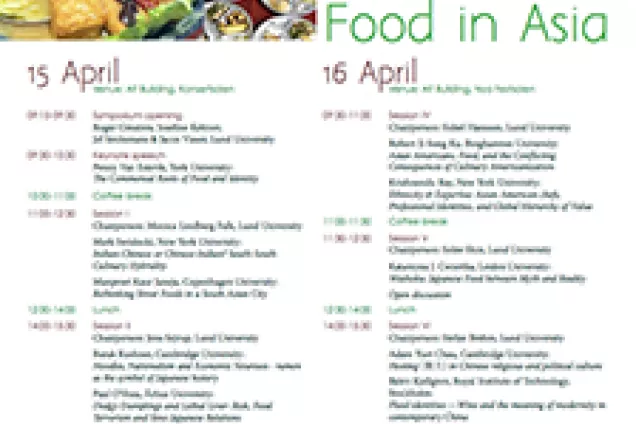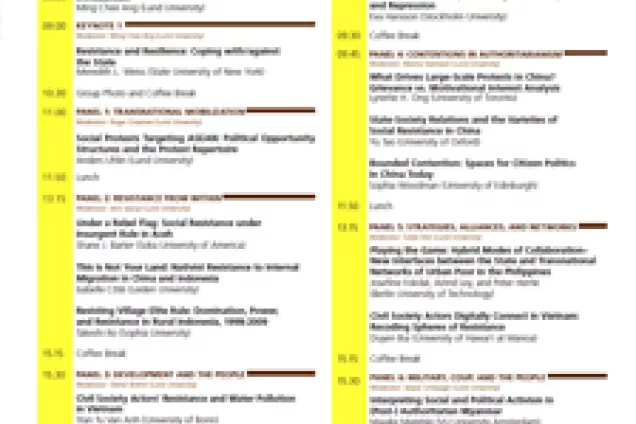Focus Asia 2014
Food in Asia
15-16 April, 2014
The exciting field of Food Studies embraced and examined the broad topic of food and its importance in various aspects of life. During this XXIst biannual Focus Asia symposium we sought to gain a broader understanding of the role of food in Asian societies by looking at food from different angles. Leading experts explained the multi-layered importance of food, focusing on food and identity, the economic aspects behind food, the environmental challenges in food production, and the waste complications resulting from food production and consumption. In the sub-field of food and identity, for example, the symposium sought to provide a broader understanding of the various roles food plays in different societies and to learn, through interdisciplinary exchange, about differences and similarities between societies. In its 2013 report, the Food and Agriculture Organization of the United Nations estimated that worldwide roughly one third of all food intended for human consumption is either lost or wasted. In Laos, Cambodia and Vietnam, for example, as much as seventeen percent of crops are lost due to poor infrastructure. Furthermore, research has shown that with increasing incomes, food patterns change leading to, for example, increased consumption of meat and animal products. In India and China this has had major consequences for the environment and economy. Consequently, Focus Asia also had the aim of addressing the relationship between food and economy, looking at issues such as agricultural reform and sustainability.
Social Resistance in Non-Democracies
25-26 November, 2014
Unlike the situation in liberal democratic states, social resistance in non-democracies faces higher risks of coercive suppression, and encounters more constraints in terms of accessing resources or mobilizing support from the community. Such limitations force social resistance actors to adapt themselves frequently throughout their lifespan in response to pressures imposed on them. To endure in a restricted political environment, social resistance within these states may be in the form of passive, latent, or quiet activities, yet yield significant political consequences.
The aim of this symposium was to understand different types of social resistance in non-democracies, and to what extent they have yielded significant political claims. How and why are some social resistance movements successful in eliciting reactions and compromises from the state, while others do not? Through analyzing case studies from Asia, this symposium also compares the active and dynamic power relationships between social resistance actors and the regimes, as well as reactions of the regimes towards these resistances.

Focus Asia April 2014


